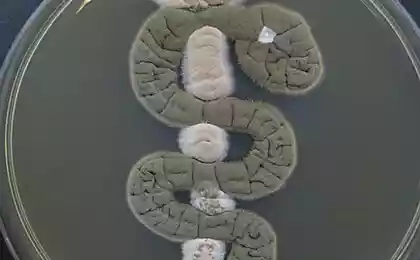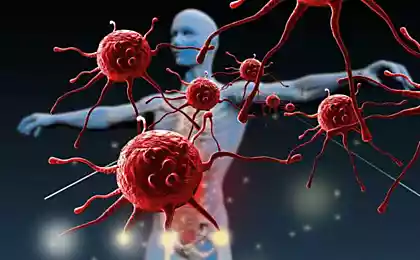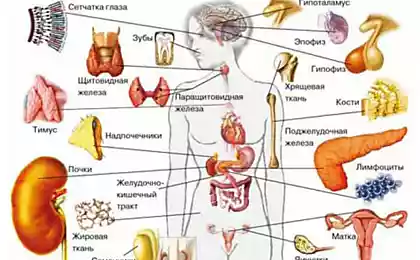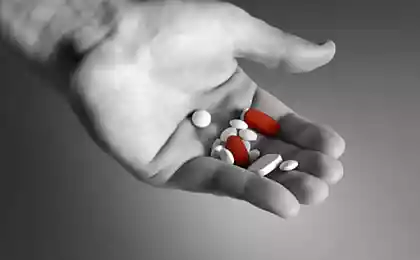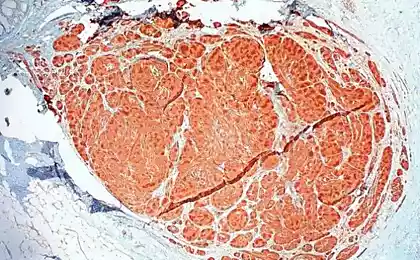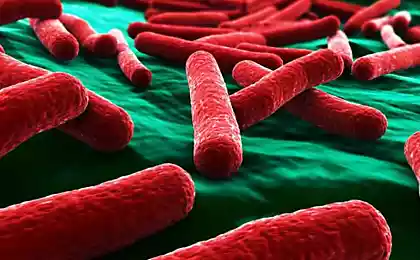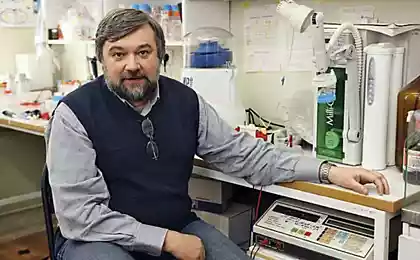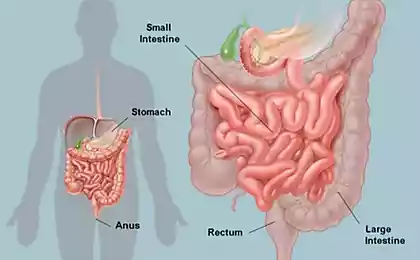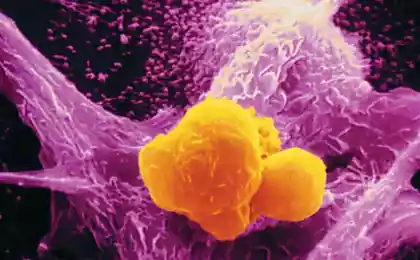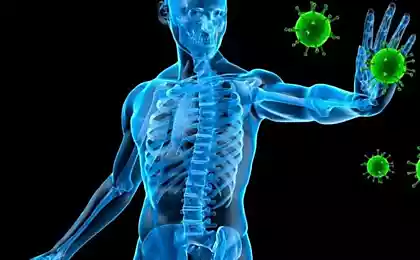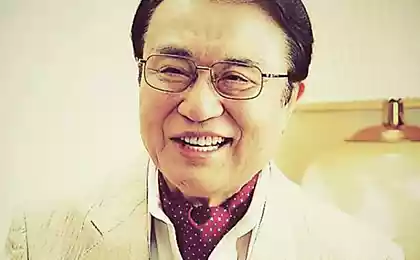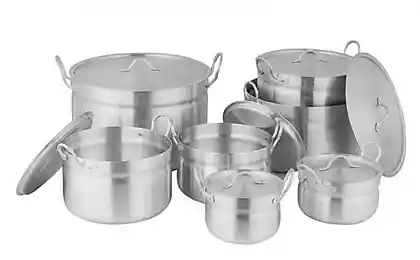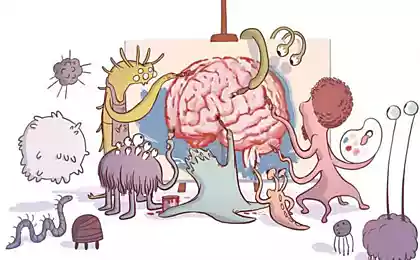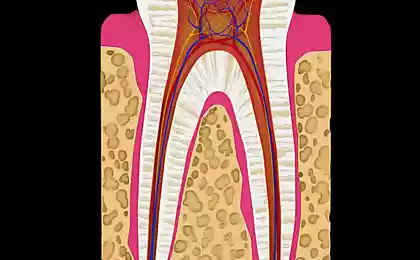510
What inhibits and stimulates immune cells
Originally under the immunity refers to the immunity of the organism to infectious diseases. But since the mid-twentieth century, the result of research Englishman P. Madura, it was proved that immunity protects the body not only from microbes but also from any other genetically foreign cells (parasites, foreign tissues used for transplantation, as well as their own tumor cells). According to modern concepts, the main function of the immune system — supervision of the internal consistency of multicellular structures in the body.
Detection and destruction of infiltrators from outside genetically foreign cells, including microorganisms, is a consequence of this primary function. Since cancer cells are genetically different from normal, one of the purposes of immune surveillance — destruction of such cells.
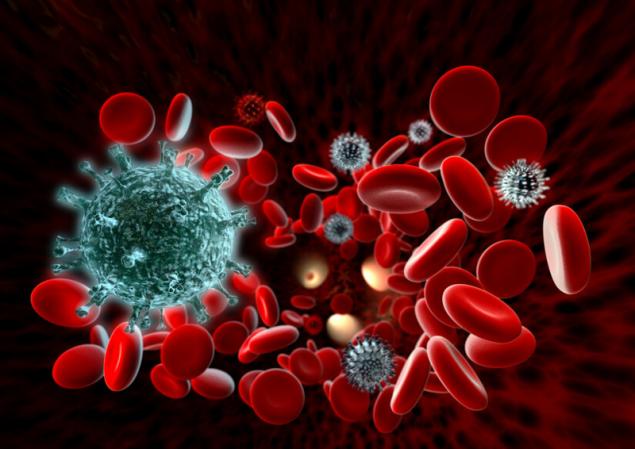
THE IMMUNE SYSTEM
The immune system is one of the most important systems of the human body, but the view that all diseases — from problems with immunity is not true. Usually for the development of the disease requires several factors, one of which may be reduced immunity. For example, peptic ulcer develops in the presence of high acidity, motility disorders, including those due to neuropsychiatric dysfunction, and weakening of local immunity.
On the other hand, diabetes develops independently of the immune system, but further leads to weakening of the immune system. When any disease affects many organs and systems, as well as a problem with the individual systems can cause problems in others. In the holistic human organism everything is interconnected. It is impossible to separate the gastrointestinal tract or the respiratory system from their local immunity, which is an integral part of the immune system. A doctor, prescribe treatment, choose which organs and systems need help, and what (if correcting basic faults) will "repair" themselves. For this purpose, in particular, there is rehabilitation after illness (limitation of physical activity, Spa treatment).
The immune system is very complex and diverse: there is a General immunity (blood, lymph contain large amounts of immune proteins and cells that circulate throughout the body), as well as local tissue immunity in all organs, cellular immunity (lymphocytes, macrophages, etc.) and humoral (immunoglobulins — proteins of the immune response). Among immunocompetent cells and effector proteins is directly acting on the genetically foreign cells, there are regulatory, activating the effector, there are those who watched that the immune response was not too strong, there are carriers of immunological memory.
For each micro-organism or foreign cell (the antigen) produces a unique immunoglobulin (antibodies), at least three classes. Antigens with antibodies to form complex systems. Even passing special tests, it is impossible to obtain complete information about condition of immunity, therefore, the doctor often has to rely on indirect evidence, their knowledge and experience (e.g., fecal microflora is a reflection of local immunity of the intestine, the proteolytic activity of enzymes, analysis of the contents of secretory immunoglobulins in feces, saliva, and gynecological samples). On the state of General immunity can be judged by special blood tests, where we study the immunoglobulins and cells of the immune system (immune status).
SCOPE OF IMMUNITY.
With many viruses and bacteria, the immune system is doing, not allowing them to Express their pathogenicity. So not every human contact with microbes ends with the development of the disease. The immune system recognizes and removes from the organism foreign materials of different origin — from proteins and polypeptides, viruses, fungi, bacteria, their metabolic products and ending by tumor cells, and any other genetically foreign cells (parasites, foreign tissues used for transplantation, and its own defective cells).
But even very well-functioning immune system can not resist large quantities of viruses, bacteria, protozoa and eggs of worms. If the microorganisms were able to overcome all barriers, and the disease has already started, then it should be treated. Treatment can be additional, restorative purposes so as to help the immune system to quickly neutralize the pathogen, for example, vitamins, adaptogens. When bacterial diseases can be used antibacterial drugs. With some pathogens, the body itself can not cope, and then the disease takes a chronic, protracted.
CHILDREN'S IMMUNITY
The formation of immunity begins in the womb. A child with bacteria immediately after birth, and immediately starts working immune system.
There is a misconception that the child needs to be kept in maximum sterile conditions. Hence the fear to kiss your baby, long-lasting sterilisation of baby things, dishes for food, feeding the baby and even expressed sterilized breast milk.
Of course, you need to observe basic hygiene measures, but no need to overdo it, as excessive sterility of the environment interferes with the normal formation of immunity. Important role in the protection of the child up to 6-12 months from infections is breastfeeding and the prevention of dysbiosis. In breast milk contain immune proteins that are absorbed and enter the body of the child and protect him from infections. Own immune proteins, the child begins to produce later. If the child is to be bottle-fed, there is a high risk of infections, dysbiosis and allergies. In cases of severe infection of breast milk the mother can be treated without interrupting breastfeeding, almost always without the use of antibiotics.
DECREASE IN IMMUNITY.
Reduced immunity manifested by frequent colds (more than 4 times per year in adults and 6 in children); long-lasting colds (more than 2 weeks); chronic or recurring infectious diseases.
Everyone knows that some illnesses ("chickenpox" measles, rubella, mumps, etc.) a person is sick only one time in my life, and then formed immunity to the disease. For this we have to thank our immune system remembers the pathogen and forms a strong immunity. However, with severe immunodeficiency (AIDS), this immunity may be lost.
STRENGTHENING THE IMMUNE SYSTEM
Modern lifestyle often leads to disorders of immunity: adverse environmental factors, frequent stress, changed diet, reduced physical activity of people with prolonged stay in areas where an increased concentration of microbes, dust, allergens, lack of light. Therefore it is necessary to strengthen your immune system.
There is no universal means "to improve" immunity. The human immune system is so complex that if not knowing exactly what at this moment there are violations to begin to stimulate some this may lead to the development of autoimmune diseases or aggravate existing disorders of the immune system. If You have significant violations of the immune system — it is better to address to the doctor-immunologist for advice and to carry out immunological examination. After receiving the results of immunogram advise one or another immunomodulator, which best correct existing violations in the immune system.
Minor manifestations of disorders of immunity is required, primarily to exclude the impact of those adverse factors that these violations caused. Additionally it is advisable to take medication that contains multivitamins, minerals, adaptogens, antioxidants, biostimulants.
Autoimmune diseases.
Diseases in which the immune system due to it takes violations of its own tissues, cells, proteins as foreign and begins to destroy them. These conditions include, for example, rheumatoid arthritis (occurs destruction of joints and connective tissue), multiple sclerosis (destruction of nerve fibers), psoriasis (destruction of skin).
The relationship between immunity and dysbiosis of the gastrointestinal tract.
In normal human gut are the organisms that contribute to providing the body with vitamins, minerals, protects against harmful, pathogenic microorganisms. In violation of the microflora of the gastrointestinal tract (dysbiosis) is the excessive reproduction of pathogenic microorganisms, which "poison" the body and the immune system with their toxins, absorb vitamins and minerals, causes inflammation and disrupt the digestive process.
Immunocorrecting therapy.
Are drugs that affect certain parts of the immune system. Immunostimulatory activity have vitamins, Siberian ginseng, ginseng and some other herbal or chemical substances. published
P. S. And remember, only by changing their consumption — together we change the world! © Join us at Facebook , Vkontakte, Odnoklassniki
Source: www.medinfo.ru/sovety/imm/32n.phtml
Detection and destruction of infiltrators from outside genetically foreign cells, including microorganisms, is a consequence of this primary function. Since cancer cells are genetically different from normal, one of the purposes of immune surveillance — destruction of such cells.

THE IMMUNE SYSTEM
The immune system is one of the most important systems of the human body, but the view that all diseases — from problems with immunity is not true. Usually for the development of the disease requires several factors, one of which may be reduced immunity. For example, peptic ulcer develops in the presence of high acidity, motility disorders, including those due to neuropsychiatric dysfunction, and weakening of local immunity.
On the other hand, diabetes develops independently of the immune system, but further leads to weakening of the immune system. When any disease affects many organs and systems, as well as a problem with the individual systems can cause problems in others. In the holistic human organism everything is interconnected. It is impossible to separate the gastrointestinal tract or the respiratory system from their local immunity, which is an integral part of the immune system. A doctor, prescribe treatment, choose which organs and systems need help, and what (if correcting basic faults) will "repair" themselves. For this purpose, in particular, there is rehabilitation after illness (limitation of physical activity, Spa treatment).
The immune system is very complex and diverse: there is a General immunity (blood, lymph contain large amounts of immune proteins and cells that circulate throughout the body), as well as local tissue immunity in all organs, cellular immunity (lymphocytes, macrophages, etc.) and humoral (immunoglobulins — proteins of the immune response). Among immunocompetent cells and effector proteins is directly acting on the genetically foreign cells, there are regulatory, activating the effector, there are those who watched that the immune response was not too strong, there are carriers of immunological memory.
For each micro-organism or foreign cell (the antigen) produces a unique immunoglobulin (antibodies), at least three classes. Antigens with antibodies to form complex systems. Even passing special tests, it is impossible to obtain complete information about condition of immunity, therefore, the doctor often has to rely on indirect evidence, their knowledge and experience (e.g., fecal microflora is a reflection of local immunity of the intestine, the proteolytic activity of enzymes, analysis of the contents of secretory immunoglobulins in feces, saliva, and gynecological samples). On the state of General immunity can be judged by special blood tests, where we study the immunoglobulins and cells of the immune system (immune status).
SCOPE OF IMMUNITY.
With many viruses and bacteria, the immune system is doing, not allowing them to Express their pathogenicity. So not every human contact with microbes ends with the development of the disease. The immune system recognizes and removes from the organism foreign materials of different origin — from proteins and polypeptides, viruses, fungi, bacteria, their metabolic products and ending by tumor cells, and any other genetically foreign cells (parasites, foreign tissues used for transplantation, and its own defective cells).
But even very well-functioning immune system can not resist large quantities of viruses, bacteria, protozoa and eggs of worms. If the microorganisms were able to overcome all barriers, and the disease has already started, then it should be treated. Treatment can be additional, restorative purposes so as to help the immune system to quickly neutralize the pathogen, for example, vitamins, adaptogens. When bacterial diseases can be used antibacterial drugs. With some pathogens, the body itself can not cope, and then the disease takes a chronic, protracted.
CHILDREN'S IMMUNITY
The formation of immunity begins in the womb. A child with bacteria immediately after birth, and immediately starts working immune system.
There is a misconception that the child needs to be kept in maximum sterile conditions. Hence the fear to kiss your baby, long-lasting sterilisation of baby things, dishes for food, feeding the baby and even expressed sterilized breast milk.
Of course, you need to observe basic hygiene measures, but no need to overdo it, as excessive sterility of the environment interferes with the normal formation of immunity. Important role in the protection of the child up to 6-12 months from infections is breastfeeding and the prevention of dysbiosis. In breast milk contain immune proteins that are absorbed and enter the body of the child and protect him from infections. Own immune proteins, the child begins to produce later. If the child is to be bottle-fed, there is a high risk of infections, dysbiosis and allergies. In cases of severe infection of breast milk the mother can be treated without interrupting breastfeeding, almost always without the use of antibiotics.
DECREASE IN IMMUNITY.
Reduced immunity manifested by frequent colds (more than 4 times per year in adults and 6 in children); long-lasting colds (more than 2 weeks); chronic or recurring infectious diseases.
Everyone knows that some illnesses ("chickenpox" measles, rubella, mumps, etc.) a person is sick only one time in my life, and then formed immunity to the disease. For this we have to thank our immune system remembers the pathogen and forms a strong immunity. However, with severe immunodeficiency (AIDS), this immunity may be lost.
STRENGTHENING THE IMMUNE SYSTEM
Modern lifestyle often leads to disorders of immunity: adverse environmental factors, frequent stress, changed diet, reduced physical activity of people with prolonged stay in areas where an increased concentration of microbes, dust, allergens, lack of light. Therefore it is necessary to strengthen your immune system.
There is no universal means "to improve" immunity. The human immune system is so complex that if not knowing exactly what at this moment there are violations to begin to stimulate some this may lead to the development of autoimmune diseases or aggravate existing disorders of the immune system. If You have significant violations of the immune system — it is better to address to the doctor-immunologist for advice and to carry out immunological examination. After receiving the results of immunogram advise one or another immunomodulator, which best correct existing violations in the immune system.
Minor manifestations of disorders of immunity is required, primarily to exclude the impact of those adverse factors that these violations caused. Additionally it is advisable to take medication that contains multivitamins, minerals, adaptogens, antioxidants, biostimulants.
Autoimmune diseases.
Diseases in which the immune system due to it takes violations of its own tissues, cells, proteins as foreign and begins to destroy them. These conditions include, for example, rheumatoid arthritis (occurs destruction of joints and connective tissue), multiple sclerosis (destruction of nerve fibers), psoriasis (destruction of skin).
The relationship between immunity and dysbiosis of the gastrointestinal tract.
In normal human gut are the organisms that contribute to providing the body with vitamins, minerals, protects against harmful, pathogenic microorganisms. In violation of the microflora of the gastrointestinal tract (dysbiosis) is the excessive reproduction of pathogenic microorganisms, which "poison" the body and the immune system with their toxins, absorb vitamins and minerals, causes inflammation and disrupt the digestive process.
Immunocorrecting therapy.
Are drugs that affect certain parts of the immune system. Immunostimulatory activity have vitamins, Siberian ginseng, ginseng and some other herbal or chemical substances. published
P. S. And remember, only by changing their consumption — together we change the world! © Join us at Facebook , Vkontakte, Odnoklassniki
Source: www.medinfo.ru/sovety/imm/32n.phtml
